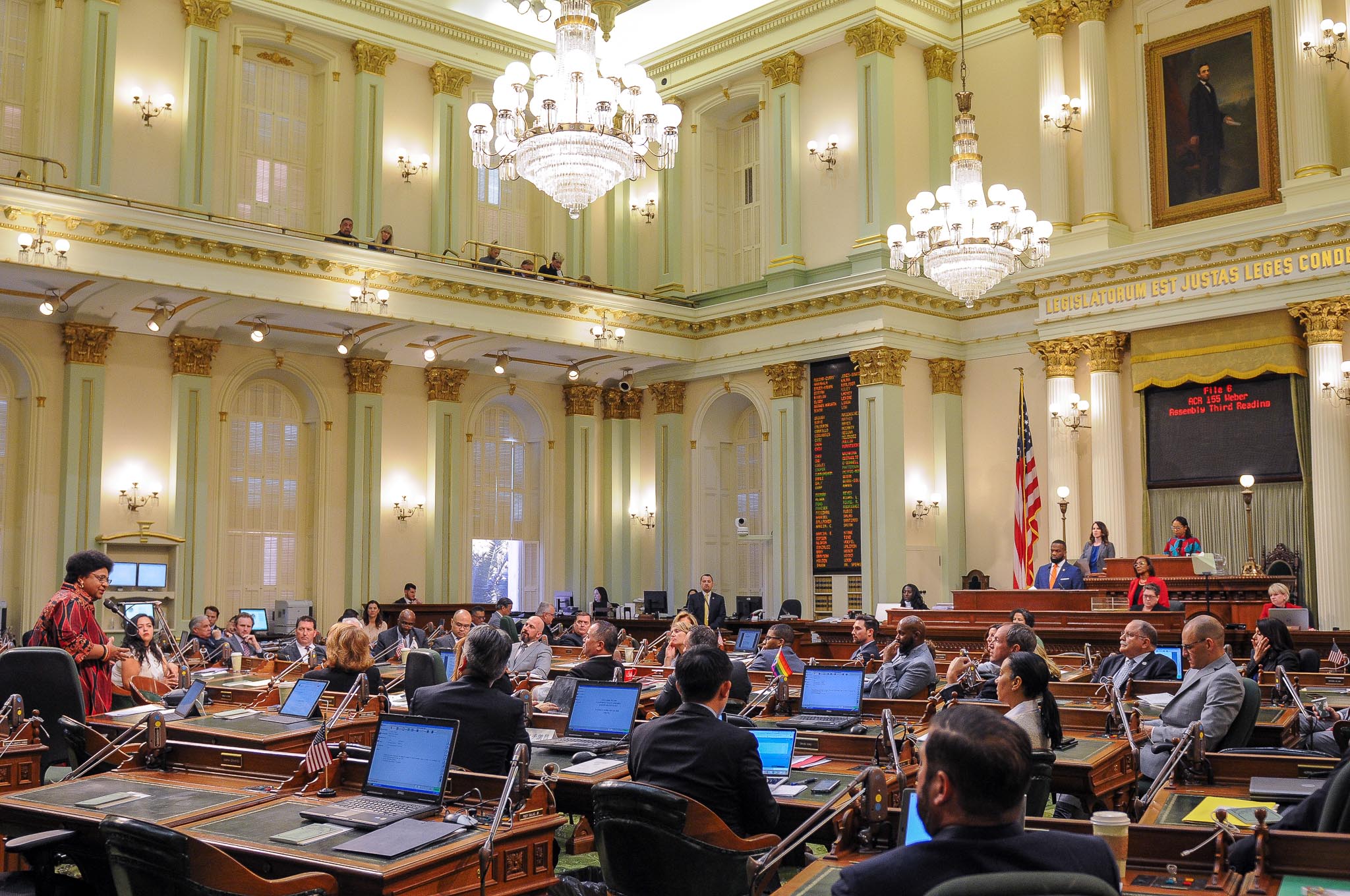
California State Capitol. (Photo: Kevin Sanders for California Globe)
Should There Be an Office of Regulatory Counsel?
With the volume of proposed regulations every year, there should be a centralized location of attorneys trained to draft regulatory language
By Chris Micheli, November 17, 2023 2:45 am
For those involved in the California legislative process, everyone is familiar with the outstanding work that is done by the attorneys and staff in the Office of Legislative Counsel (OLC). For those who are not regularly involved in the regulatory arena, you may not be aware that there does not exist a similar office to assist executive branch state agencies.
As a result, I am advocating for the creation of a new “Office of Regulatory Counsel,” (ORC) that should be housed in the Governor’s Office, similar to a handful of other offices based in the Governor’s Office, such as Go-Biz, Office of Tribal Adviser, etc.
The ORC would be similar to the Office of Legislative Counsel, which drafts legislation for the Legislature and Governor, but the ORC would play a similar role for executive branch agencies. Why do I think this new entity is necessary?
The first reason is that the staff of state agencies are generally not trained in the drafting of regulations. While some of the larger agencies and departments do have attorneys on staff, there should be central group of attorneys who are trained in drafting and who can assist to ensure clarity and consistency in regulatory drafting.
The need for specialized drafting attorneys is borne out by the fact that the number one reason for the Office of Administrative Law (OAL) rejecting regulations is based on the lack of clarity. The lack of clarity can generally be addressed by good drafting attorneys. While the attorneys at OLC specialize in drafting statutes for the Legislature, California’s 200+ rulemaking entities also need attorneys in the same – those who specialize in drafting regulations.
The second reason is, considering the volume of regulations being proposed every year (which is 600 to 700 per year), there should be a centralized location of attorneys trained to draft regulatory language. Just like OLC has developed an outstanding team of legislative attorneys, the executive branch needs a team of regulatory attorneys to drafting the language of regulations, as well as assist rulemaking entities in the preparation of documents that accompany regulations.
This new Office of Regulatory Counsel could attract top-notch drafting attorneys, just like the OLC, with its focus on drafting those hundreds of regulations each year. Hopefully, the Governor and Legislature will give serious consideration to creating this new office during the 2024 Session.
- Frequently Asked Questions about Voting on a Recall Petition - April 29, 2024
- Should Interpretive Guidance Be Included in California Legislation? - April 28, 2024
- Legislative Intent Does Not Equate to a Mandate - April 27, 2024





To advance another argument that aligns with this proposal, it’s worth noting legislation authorizing “emergency” adoption of regulations (a not uncommon response to a perceived emergency) bypass some of the standard OAL protocols for Reg review. Consequently, raising the usual caliber of first iteration Reg drafting before they are in public circulation would be an improvement of significance.
The drafting task itself would likely also help bring more clarity to existing refs as underlying ambiguities, duplications, or outdated elements get noted as hindering and complicating the intended clarity outcomes.
In defense of tax payers, I think a cabinet of lawyers helping with 600 to 700 new rules per annum is a recipe for further administrative state insanity, incompetence, and corruption. The capitol, and State government, is crawling with lawyers already – they occupy many boards and committees, they run agencies, well outside of their expertise and experience. They have turned everything legal into tradecraft, hidden behind walls of subscription services and fees. If anything, we need to strip California agencies of their rule-making abilities.
Highly paid lawyers shuffling regulations does not seem like a good idea unless the goal is to reduce regulations. CA needs to start de-regulating before the only ones left in-state are the very rich, the homeless, criminals, other illegals and tourists coming to gape at the wreck of a once great state. While some regulations are undoubtedly needed, all regulations put new limits on freedom, all regulations have costs that usually result in abuse, waste, and misuse of taxpayer funds. The more regulations the worse the economy gets. The more regulations, the more the lawyers and politicians become the only ones who benefit. Keep regulating and CA will continue to experience net-exodus.
I am not an attorney, and I have been involved in the creating, developing and writing regulations in Title 24 since 1982. I firmly believe the public would NOT benefit from this proposal. Many regulations are technical in nature, and it is more critical to have someone who understands the intricacies of the regulations than it is to have someone who understands law.
Often, when a brief or summary is written by an attorney, the reader must also be an attorney to fully understand the intent of the regulation. The reality that persons trying to understand or apply the regulations are typically not attorneys; rather the user of the regulation typically has a good understanding of the subject matter covered in the regulation.
A better method is to have the regulations written by someone who understands the subject matter, and then those regulations are distributed and vetted by the industry affected. In this way, the subject matter experts are involved in the wording of the regulation. Without the subject matter experts, the regulation can often result in unintended consequences by affecting other subjects without the attorney realizing it.
The obvious argument to this is to have the subject matter experts from the state agency involved in the development of the regulation. But wait, that is the process now, so what benefit do the attorneys add to the process?
The California budget is already bursting at the seams. It is not financially prudent, nor expedient, to this additional layer of bureaucracy, to the process. This is compounded by the fact that end result cannot be expected to be improved through this process.